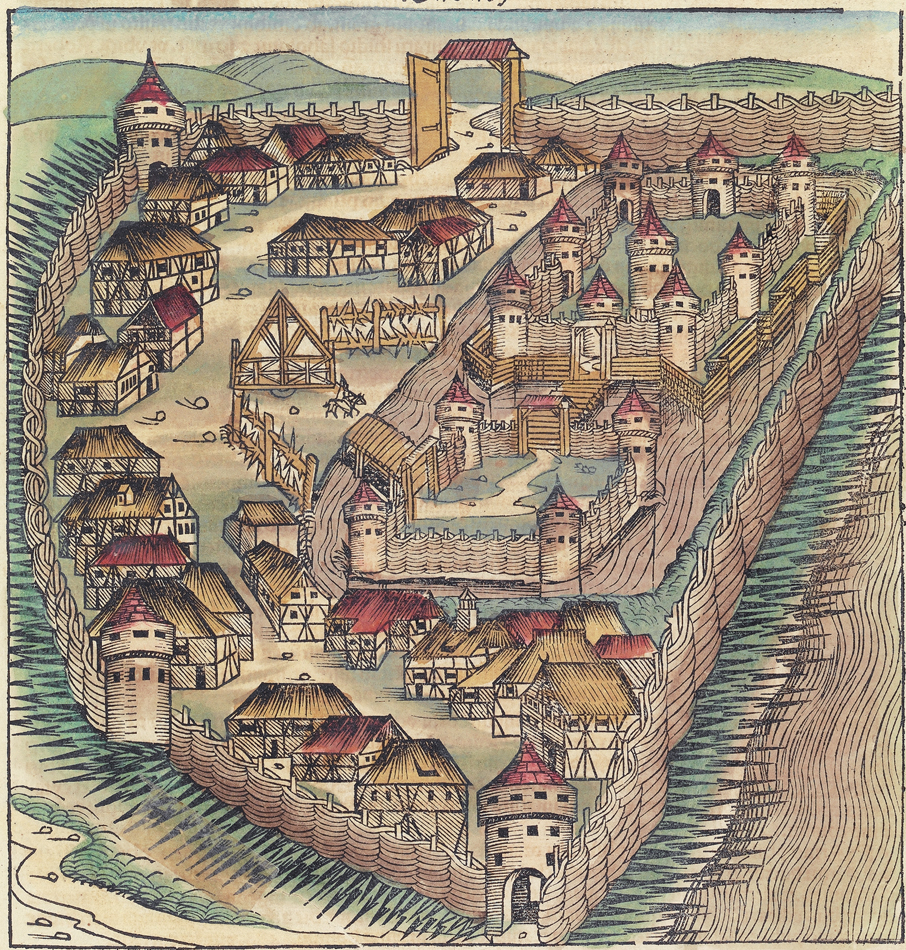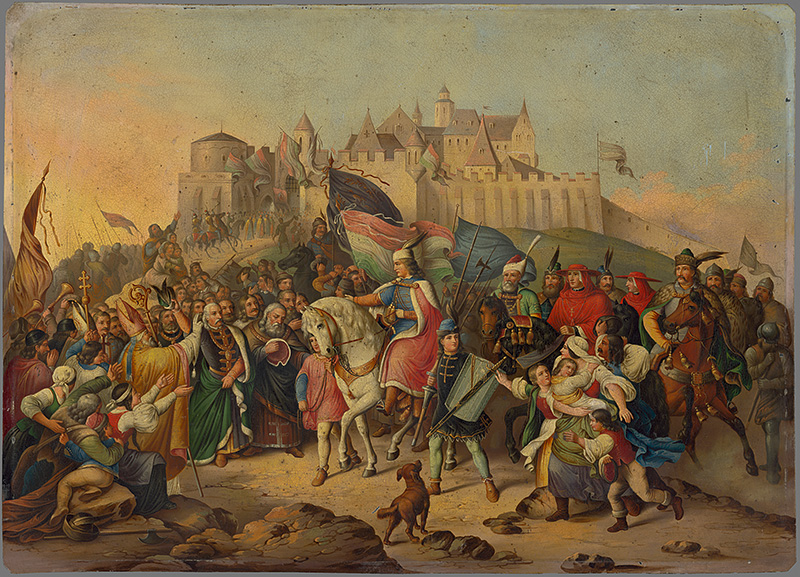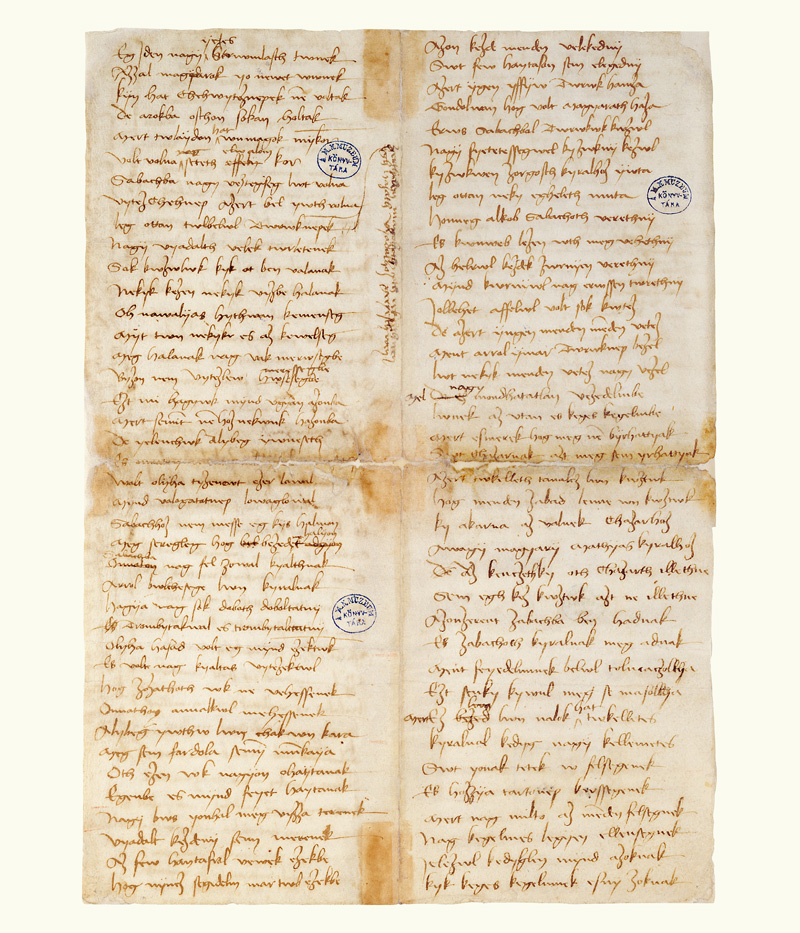The oldest Hungarian narrative poem tells a story about the famous Siege of Šabac
 The unknown Hungarian medieval poet told a story about the heroic battle of the army of Matthias Corvinus, known as King Mátyás. Today, it is the only poem in Hungarian that survived from the medieval era and still can be heard at the many traditional performances.
The unknown Hungarian medieval poet told a story about the heroic battle of the army of Matthias Corvinus, known as King Mátyás. Today, it is the only poem in Hungarian that survived from the medieval era and still can be heard at the many traditional performances.
The Siege of Šabac in 1476 was a battle against Ottomans, who had built the strong fortification just a few years before to secure its borders against the Kingdom of Hungary. Many noble Serbs were posted in Corvinus’s army, including Sibinjanin Janko (hun. Hunyadi János) and Vuk Grgurević Branković, known as Zmaj Ognjeni Vuk. Famous Vlad the Impaler (Vlad Dracula) was there with them.
The siege was a try by King Mathias I Hunyadi to convince the Europeans to take more action against the Ottoman threat. Still, despite his victory and Šabac conquest, he later failed in his attempt.
The only way to attack Šabac was from the river Sava. King Mathias brought an army of ten thousand cavalry and six thousand mercenaries. King was based in Belgrade for a while (Nándorfehérvár in those days), and he was waiting for the fleet coming up the Danube to assemble, then sent it upstream by the river Sava to Šabac.

From galleys, Mathias bombarded the fortress in early January of 1476 to secure troops landing at the positions beneath the outer city walls. Bombardments from ground and river continued for weeks, and it seemed that King Mathias was trying to delay a strike, although he had a superior army to the Ottomans. It was a part of Mathias’s brilliant tactics. He ordered a false retreat to deceive the enemy, but soon, his troops stormed the walls when the Ottomans took a break.
But this is only one of many legends of the siege. The poem Szabács Viadala tells a different story. The commander of the Ottoman army, Ali Bey, took 15 thousand horsemen to defend Šabac. Still, according to the poem, he was so intimidated by the power of King Mathias’s army that he decided to retire.
The poem praises the siege, talking about the great victory of King Mathias, who came back home to Buda castle with great booty
The fortress remained poorly defended, but the key moment for Mathias’s victory was treason by one man who escaped from the fortress and betrayed the Ottomans, showing the opponent weak portions of the city walls that should be bombarded. After easily breaching the outer walls, the commander of the fortification surrendered, saving the lives of his soldiers. Hungarians lost two hundred soldiers, while Ottomans suffered twice more.

Anyway, the poem praises the siege, talking about the great victory of King Mathias, who came back home to Buda castle with great booty. The song lyrics are incomplete, but we still can get a picture of the battle.
The commander of the Ottoman army, Ali Bey, took 15 thousand horsemen to defend Šabac. Still, according to the poem, he was so intimidated by the power of King Mathias’s army that he decided to retire.
The poem itself is important not only as a historical source but also as a piece of art of that time. Although it was found heavily damaged four centuries later, it is a rare example of an important historical event. The poem Szabács Viadala took a very important place in Hungarian national literature and history.